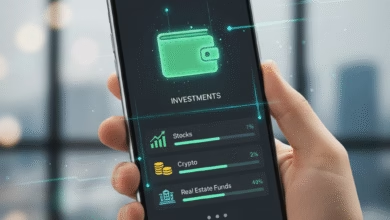Should you invest in ETFs or Bitcoin directly?
What's the Best Path? How to Decide Between Investing in Bitcoin or an ETF

With the rise of cryptocurrencies, many investors are asking the same question: Is it better to invest directly in Bitcoin or to use a more traditional vehicle like an Exchange-Traded Fund (ETF)? The answer isn’t simple, as both options offer distinct advantages and disadvantages. This article will break down the key differences to help you make an informed decision that aligns with your financial goals and risk tolerance.
The Ultimate Guide to Bitcoin and ETF Investment: A Head-to-Head Comparison

Choosing between direct Bitcoin ownership and a Bitcoin ETF boils down to a few core factors: control, convenience, security, and cost. For the experienced crypto user, the freedom and independence of holding Bitcoin directly might be appealing. For the newcomer, the simplicity and familiarity of an ETF could be the perfect entry point.
What is a Bitcoin ETF and How Does it Work?
An Exchange-Traded Fund (ETF) is a type of investment fund that is traded on a stock exchange. When you invest in a Bitcoin ETF, you are not buying Bitcoin itself. Instead, you are buying shares of a fund that holds Bitcoin. This allows investors to gain exposure to Bitcoin’s price movements without the complexities of buying, storing, and securing the digital asset directly.
Key advantages of a Bitcoin ETF:
- Convenience: You can buy and sell ETF shares through a standard brokerage account, just like any other stock.
- Security: The fund provider is responsible for the secure storage and custody of the underlying Bitcoin, removing the need for you to manage private keys and digital wallets.
- Familiarity: For traditional investors, an ETF is a familiar and regulated product, offering a level of comfort and regulatory oversight not always present in the crypto space.
Direct Bitcoin Ownership: The Path to True Decentralization
Directly owning Bitcoin means you buy the cryptocurrency on an exchange and hold it in a digital wallet. This gives you complete control over your asset, a core principle of the decentralized nature of Bitcoin.
Key advantages of direct Bitcoin ownership:
- Full Control: You have direct custody of your Bitcoin. As the saying goes, “not your keys, not your coins.”
- 24/7 Trading: The cryptocurrency market operates around the clock, allowing you to trade at any time, unlike ETFs which are limited to stock market hours.
- No Management Fees: While there are transaction fees on exchanges, you avoid the ongoing annual management fees (expense ratios) that ETFs charge.
Security and Risk: Navigating the Complexities of Digital Assets

This is arguably the most critical area of difference. The security of your investment varies greatly between the two options.
Is a Bitcoin ETF a Safer Investment?
A Bitcoin ETF shifts the responsibility of security to a professional, regulated custodian. These custodians use institutional-grade security protocols, including cold storage and robust cybersecurity measures, to protect the assets. However, this introduces a new risk: counterparty risk. You are trusting the fund provider to manage your investment and its underlying assets.
Direct Ownership and Self-Custody: The Responsibility is Yours
When you own Bitcoin directly, you are your own bank. This means you are solely responsible for the security of your private keys and wallet. Losing your private keys could result in a permanent loss of your funds, and your wallet is a potential target for hackers if not secured properly. While this offers the ultimate level of independence, it requires a high degree of technical knowledge and discipline.
Making Your Choice: Which Investment Aligns with Your Goals?
The choice between a Bitcoin ETF and direct Bitcoin ownership depends on your individual profile.
- Choose a Bitcoin ETF if: You are a traditional investor seeking exposure to Bitcoin’s price without the technical hassle of self-custody. You prioritize convenience, regulation, and professional asset management.
- Choose direct Bitcoin ownership if: You value the principles of decentralization, want full control of your assets, and are comfortable with the responsibility of managing your own security.
Both paths offer a way to participate in the dynamic world of digital assets. Your decision should reflect your comfort level with technology, your tolerance for risk, and your long-term investment strategy.

Do you feel more comfortable with a traditional, regulated investment like an ETF, or does the idea of being your own bank with direct ownership of Bitcoin appeal to you more?




